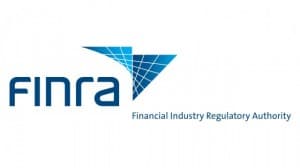2013 FINRA Changes and Those to Come
Filed in: Knopman News, Series 24, Series 63, Series 7, Series 79
Here at Knopman, we closely monitor FINRA changes to ensure that candidates preparing for FINRA examinations are fully equipped with up-to-date content and knowledge. Such changes not only impact those preparing to take exams like the Series 7, 24, 63 and 79, but also all current investment bankers, wealth advisors and other financial industry participants overseen by FINRA.
The most impactful FINRA changes of 2013 include:
- Communications with the Public – FINRA rule 2210 changed the definitions of the different types of communications (e.g. retail communications, correspondences) and amended the circumstances under which they must be filed with FINRA for approval. Registered reps are required to abide by these rules in all communications with clients.
- The JOBS Act – A number of regulations have changed in the past year as they relate to issuing securities and raising capital:
- Issuers with less than $1 billion in revenue can do confidential SEC filings before going public.
- The JOBS Act mandates that the SEC updates Regulation A by increasing the threshold for more lenient disclosure requirements for public offerings to $50 million and creating a federally imposed exemption from state registration. This regulation has not yet gone into effect but should be on the radar of capital markets professionals.
- Under new crowdfunding rules, issuers can raise small amounts of capital in a private placement offered to anyone. Along with this rule, the SEC eliminated the ban on general public solicitations and marketing of private placements.
- Limit-up Limit-down –Under the new limit-up limit-down mechanism, if a stock deviates by a certain percentage from its five minute moving average and stays that way for 15 seconds, then trading is halted for five minutes. The impact of this rule is that stocks that experience sudden and extreme fluctuations are halted. Watch Full Explanation Here.
- Trade Reporting changes – Trades in equity securities are now required to be reported within 10 seconds of execution, down from 30 seconds. This change is driven by the fact that the vast majority of trades in equity securities are reported electronically, making 10 seconds a much more feasible standard than it would have been a few years ago.
Looking ahead, the New Year will bring retirement plan contribution changes. In 2014, the maximum contribution to qualified corporate retirement plans (e.g. 401(k), pension), the total of an elective salary deferral plus employer matching contributions, increases to $52,000. Also, the maximum adjusted gross income for an individual to remain eligible to contribute to a Roth will increase from $127,000 to $129,000.
Another change slated for mid next year concerns Rule 144A, which allows qualified institutional buyers to trade unregistered securities. Currently, Rule 144A trades are reported to FINRA but are not publicly disseminated. A FINRA update will make these trade reports public, adding transparency to the bond market and other markets which utilize Rule 144A.
As Brian Marks, Senior Managing Director of Knopman Financial Training, explains, “Once the SEC finishes Dodd-Frank and the JOBS Act, these regulations will waterfall to FINRA and industry participants. FINRA’s suitability rule is a good example of the delayed impact. Though this rule went into effect in the summer of 2012, broker-dealers are continuing to adjust to recent FINRA guidance and routine examinations. Dodd-Frank and the JOBS Act will impact firms for another 18 to 24 months as regulation trickles down. Knopman Financial Training remains committed to monitoring FINRA activity to ensure that exam candidates are in the best position for success.”
Written by Liza Streiff
A visionary in the financial education and training industry who believes business growth must be tech-forward but human first. Liza is energized by the opportunity to evolve every aspect of a company not only to keep up, but to lead the way in employee engagement, digital transformation, intentional UX and design, and thoughtful client experiences. Her leadership style is rooted in the relationship between success and joy, and she is passionate about inspiring everyone, especially young women, to find success and fulfillment in the financial industry.
Related posts
- Read more
Unlock a New Dimension of Series 7 Exam Prep with the Video Vault
Are you feeling overwhelmed by the dense text of Series 7 exam prep? Maybe you consider yourself
- Read more
Master the Series 63 Exam with the Video Vault
Are you feeling overwhelmed by the dense text of Series 63 exam prep? Do you consider yourself mo
- Read more
How To Pass the Series 7 Exam in 2025
You’ve already passed your SIE and you’re ready for the next step – the Series 7 exam. The Series



